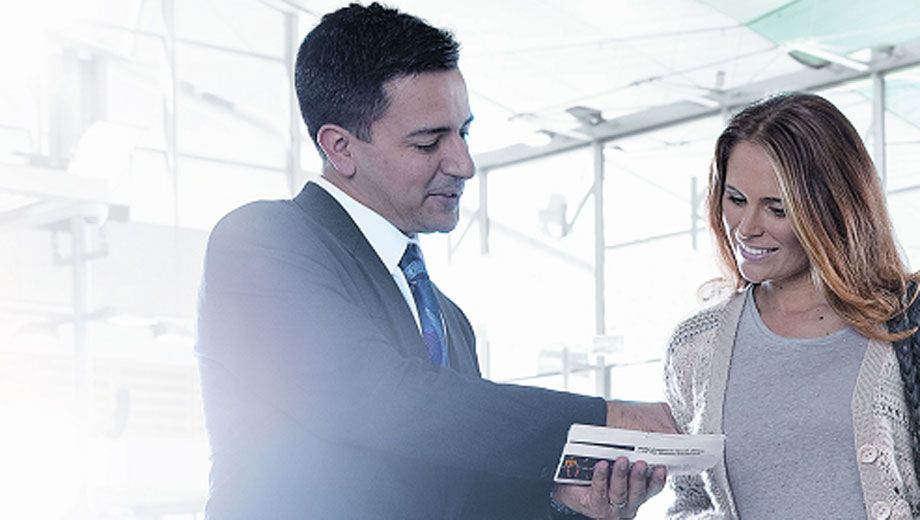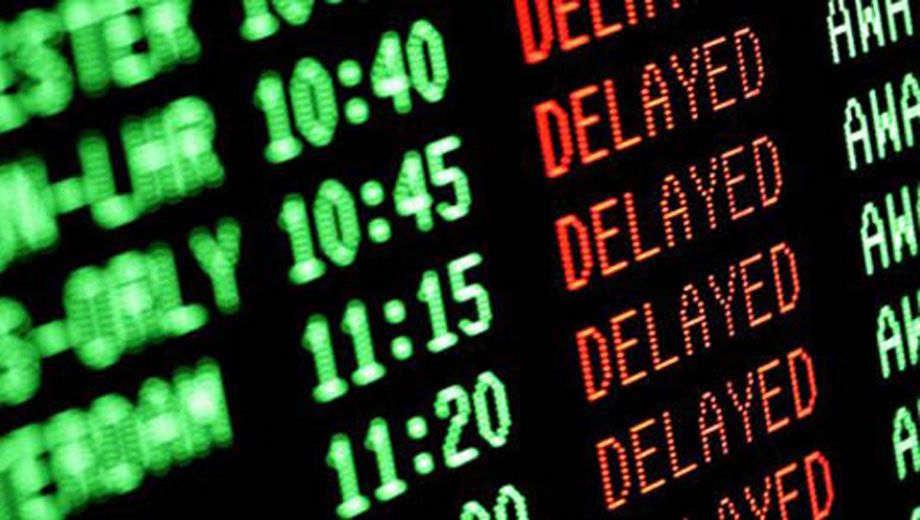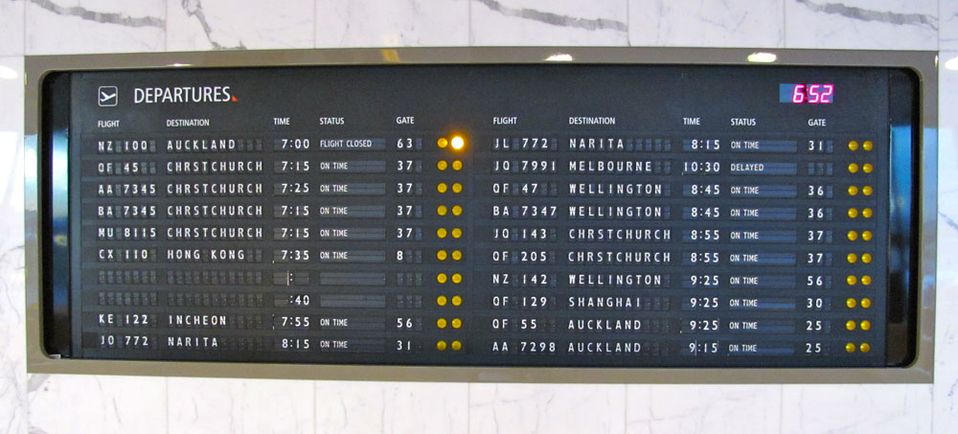With an ever-growing number of airline partnerships, understanding how airlines work together when issuing tickets is fast becoming essential for business travellers.
Having recently explained how the difference between "marketed" and "operated" airlines affects you, this week Australian Business Traveller takes a deeper dive into what you need to know about "interlining" and "codeshares".
Interlining: the first level of working together
Simply put, interlining is the most basic level of airline cooperation.
For example, if you're travelling from Sydney to Hong Kong and then connecting through to Mumbai, Qantas will make a single reservation and sell you a single ticket covering its own Qantas flight QF127 (Sydney to Hong Kong) plus Cathay's CX685 (Hong Kong to Mumbai).
You can usually collect both your boarding passes when you check in at Sydney, and you'll be able to connect from one flight to the next without going through out through security and checking in again.
Nor will you have to pick up your bags in Hong Kong to re-check them onto the CX flight.
And if your incoming flight arrives late, it's the task of the airline you bought the ticket from to sort out a new connection, instead of that job landing on your tired shoulders.
So interlining makes things a lot easier, and it can be vitally important when flights are delayed or things go wrong.
Many low-cost carriers say they're "point to point only" airlines and you book connections on them at your own risk: if they're late and you miss your onwards flight, you'll be socked with change fees or the requirement to buy an entirely new ticket on that connecting flight.
It's the same even on full-service airlines. If you buy two separate tickets for your connecting flight (which can in some cases be cheaper), the airline is under no obligation to sort you out with an onward flight if you miss the second leg of your journey.
However, one caveat in the event of a flight mishap: you need to approach the airline you bought the ticket from rather than the airline whose desk you're standing next to. In the example we gave above, this would be Qantas rather than Cathay Pacific.
It's the old "talk to the travel agent who booked this ticket" problem from years ago (before we really booked tickets from the airlines direct) except that the travel agent in this case is the other airline.
While things will usually get sorted out, it can be frustrating and slow.
Codeshares: interlining plus a bit more
Airlines codeshare with one another by putting their own airline code on the other airline's flights. Qantas coined the term back in 1989 with American Airlines, and it's really taken off in the years since as airlines look to increase their connecting traffic.
For example, Virgin Australia flight VA8004 from Sydney to Auckland is actually an Air New Zealand plane tagged as flight NZ104. And that same plane is also Air Canada 6104, Air China CA5143 and Singapore Airlines SQ6838.
Since codeshares mean the airlines are working more closely together, connections are a bit easier — luggage and flight transfers are usually better coordinated by the carriers — and the "who's responsible when things go wrong" is usually handled better than when airlines are only interlining.
You get all the benefits of interlining, and often you'll enjoy extras such as lounge access, more frequent flyer points and status credits.
But you're unlikely to get exactly the same benefits as when you fly on your own airline — the old "marketed and operated" problem rearing its head. That's why many frequent flyers keep a watchful eye out for codeshares and try to fly their own airline as much as possible instead.
For the very latest business travel news, follow @AusBT on Twitter.



28 Feb 2013
Total posts 1
Thanks for these articles. I recently got big-time burned on a Business class fare from Sydney to Johannesburg. The ticket was booked in South Africa so had a South African Airways flight number but was Qantas operated. The Qantas website clearly says that SAA is a "partner" (despite different alliances) and I should earn full Qantas FF points even with a SAA flight number. In fact I did not earn anything on Qantas, and Star Alliance didn't recognise the flight either, so I got no points from anybody.
07 Oct 2012
Total posts 1250
You should get QFF points for this flight and should contact Qantas.
"Points can only be earned on:
- domestic flights within South Africa operated by South African Airways with a SA flight number;
- international flights between Australia and South Africa operated by South African Airways or Qantas with a SA flight number."
United Airlines - Mileage Plus
29 Jan 2011
Total posts 11
Why could Qantas give me boarding passes for the AA segment from DFW to MIA, but on the homeward leg AA could only do it for the MIA-DFW leg? At least they checked my bag all the way to MEL.
21 Apr 2012
Total posts 3006
That suggest to me that that particular AA check-in agent at MIA was incompetent.
I've had no problems getting boarding passes from AA check-in agents for all segments even QF ones. The only time I couldn't was with an AA itinerary originating CDG. I let it slip...wasn't expecting much from the French. Once Stateside, the lovely AA agent sorted me out and sent me on my way.
Virgin Australia - Velocity Rewards
31 Jan 2013
Total posts 2
Hmm, VA to singapore is one to look out for too. Cant allocated seats in advance, so really cant sit together (same booking! booked weeks in advance on a full flexi fare (ouch!). , SQ airline staff very disinterested too..... Not a great way to fly.
United Airlines - Mileage Plus
29 Jan 2011
Total posts 11
After all these years, you'd think the airlines could interoperate better in this manner. There are many such examples, but while demand outstrips supply, things won't change much.
EK218104950
17 Dec 2013
Total posts 3
Whenever possible, I try to avoid using codeshare airlines and stick to the single airline journey. But sometimes it is not possible. Thus in my example of a PER-SIN-NRT on JL. My eTicket shows the following flight numbers PERSIN JL7989 SINNRT JL712. My ticket also tells me that the PERSIN sector s operated by QF. My eTkt does not show a QF flight number. Yet going to the luggage check in, I see no display of a JL7898 anywhere! How am I to know that JL7898 is also QF077?
First question: is the airline providing the flight in the name of its partner (JL here) not obliged to display that JL flight number on its various publc display?
My itinerary PERSINNRT involves an under 16 hours transit in SIN where I am booked at the airport Transit hotel. Upon check in, the QF staff (actually airport staff) tells me it cannot check my luggage through to NRT because I am flying JL the next day.. Yet my reservation is a JL res (7898 and 712). Perth QF (airport) staff, tells me I will have to go out of the transit area, collect my luggages and re-check at the JL counter the next day, oblvious of my Transit hotel booking.
Quastion: what are QF's oligations and what are my rights?
Qantas - Qantas Frequent Flyer
22 Jan 2013
Total posts 5
Interlining with 3 separate flights, on 3 separate tix, on 3 separate carriers :)
I'm wondering what my chances are on getting this done for me so I don't have to collect baggage and clear customs at each stop. I'll be flying:
I can see on the Thai website that they do have interline agreements with both QF and LY. I am assuming that such agreements are reciprocal. So other than the Separate Ticket issue, they should do this for me, right?
Not sure if the following is relevant, but:
TIA for the advice!
EK218104950
17 Dec 2013
Total posts 3
Hi,
Normally, on the International sectors of your journey, since TG has interline agreements with LY (code share TG4583 operated by an ElAl machine LY82), your luggages should follow at the BKK transit. As for your first sector from SYD to BNE on QF, this is as domestic flight. I expect that you will have to collect it in BNE since you will have to check in on TG. What's more, you will have to change terminal..
Enjoy your trip and sejourn in Israël
Shalom
Hi Guest, join in the discussion on How interlining & codeshares matter to your flights